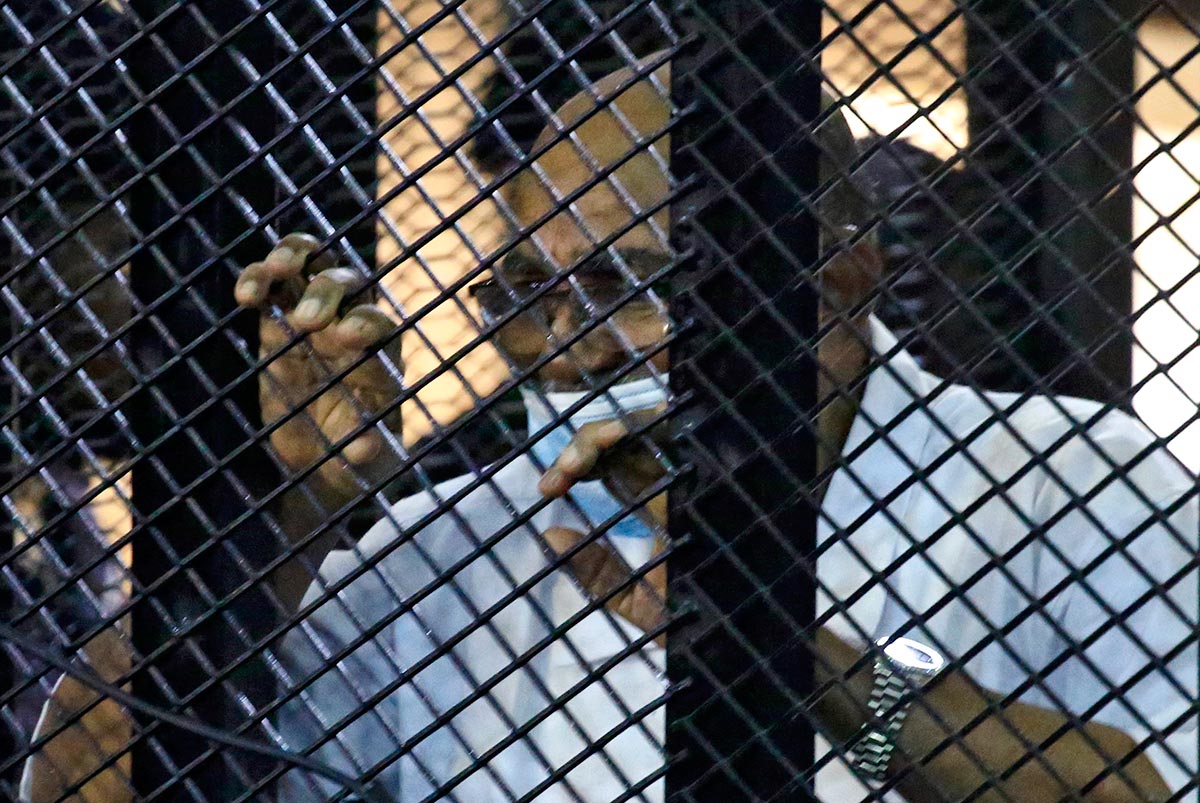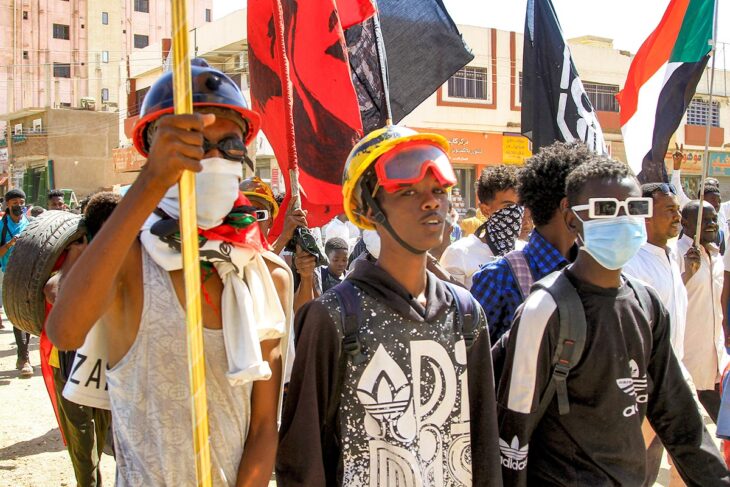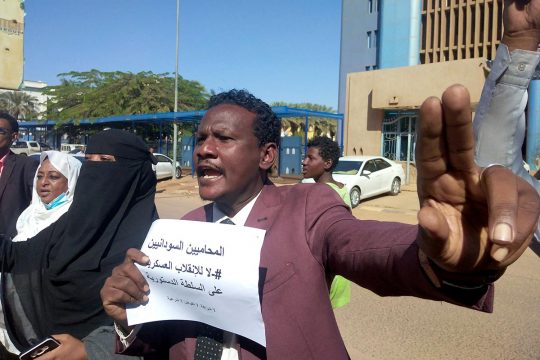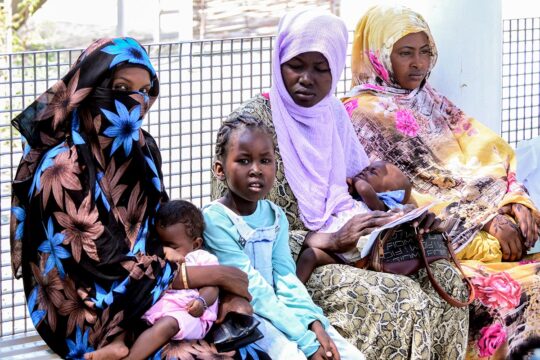One might have thought transitional justice had been lost after the democratic transition was stifled by a coup d'état, or drowned in the rivalries of weakened political parties and the threat of confrontation between different components of a fat military. Yet, according to consultations in Sudan’s capital Khartoum and its regions over the past few months, the desire for justice remains a key issue for the Sudanese people.
“The issue of justice was and still is quite central among the young people who lost their friends and among the families who lost some members,” said Abdulsalam Sayyed Ahmed, a transitional justice expert and former UN official based in Khartoum. “And because of the multiple atrocities during the three decades of Omar al-Bashir’s regime, including crimes against humanity, possible genocide, grave human rights violations in different parts of the country. This is still very much an issue, the Darfur conflict in particular.”
The civilian coalition Forces of Freedom and Change-Central Council (FFC-CC), a cornerstone of the opposition to the military government, relies on this thirst for justice. When it negotiated a framework agreement with the junta to end the political crisis, signed on December 5, 2022, it left out five particularly sensitive issues: the issue of property confiscated by supporters of the Al-Bashir regime; the issue of eastern Sudan, which is both very poor and strategic; the revision of the Juba Peace Agreement; the reform of military and security institutions; justice and transitional justice.
“The parties agreed to address these issues after the signing of the framework agreement, in five national ‘workshops’. The idea was to broaden participation in the consultation process," says Suliman Baldo, a conflict resolution and human rights expert who is director of the anti-corruption organization Sudan Transparency and Policy Tracker, founded in 2022. The civilian coalition knew that the secrecy of the negotiations with the junta would be blamed on them, and that they needed to broaden their base to include other components of the 2018-2019 popular uprising that led to the fall of former president Al-Bashir.
These five "workshops" were held from January to March, under the patronage of the United Nations Integrated Transition Assistance Mission in Sudan (UNITAM). The workshop on justice and transitional justice was intended to counter the accusation of "Khartoum-centrism" in a country plagued by tensions between the centre and the regions. It was decided to conduct workshops from March 11 to 15 in the six historical regions of the country: East, Blue Nile, Darfur, Kordofan, North, and Central. Participating in the work were more than 30 organizations, grouped in a Civil Alliance for Transitional Justice since 2019.
“The advantage [of the workshops in the regions] is involving a wide number of people, because you have different levels of atrocities and types of violations,” says Sayyed Ahmed, who helped organize them. “The other side is that when you go to the regions, you are closer to the victims and closer to the places where the violations have been committed. We will know what are the expectations and the priorities of the victims’ groups.”
Towards a civilian transitional government?
The feedback from the field was discussed during a national closing conference, held from March 16 to 20 in Khartoum. All of Sudanese society that was victimized by Omar al-Bashir's regime and then by the repression of the revolution gathered in the Friendship Hall, a massive congress hall on the banks of the Nile. Not only were victims' associations from all over the country represented, but also women's groups, political parties and the "resistance committees", the backbone of the revolution, which were not signatories to the framework agreement and were extremely critical. The demands of the regional workshops on transitional justice were compiled into a 16-point "Declaration of Principles". They were included in a draft final agreement, which was leaked on March 27 and announced for signing on April 1.
The principles outlined should guide a "transitional civilian government" that is to be appointed on the basis of the final agreement. According to point 16 of the Declaration of Principles, as reflected in the draft final agreement, the new executive should then appoint an independent transitional justice commission to establish a broadly based law, which “must include human rights violations – violations resulting from state violence, armed and civil conflicts, violations that take place in the areas of oil excavations, mining, and construction of dams, as well as all violations against economic, social, and cultural rights”.
“The issue of land is quite central in connection with conflict in Darfur and other areas,” says Ahmed. “This is something you cannot really ignore. And the Juba agreement had already specified a land commission to look into the disputes around land. Again, gold exploitation has been causing environmental damages to a lot of people in certain parts of the country. This is something that has been coming up during the discussions.”

"Transitional justice is a big lie”
Another crucial point in the draft agreement, as leaked on March 27, states that "it will not be permitted to grant amnesty, in violation of the principles and norms of international law, for war crimes and crimes against humanity, genocide and gross human rights violations. Similarly, it will not be permitted to grant an amnesty that infringes on the right of victims to seek justice in the manner of their choosing or that infringes on their right to reparation”.
It is true that a large part of the population, especially young people who led the revolutionary movement, reject amnesty. But it is difficult to imagine that those responsible, especially the most senior who have never left power, would allow themselves to be taken to court. “Those who committed the crimes are in charge of Sudan today," says human rights lawyer Ahmed Eshaq. “This is the main challenge. For witnesses and victims to be able to speak freely, we need security.”
Many human rights defenders remain sceptical. “We don’t have a competent criminal justice system,” says lawyer Salih Mahmoud Osman, winner of the 2007 Sakharov Prize. “Transitional justice is a big lie. Omar al-Bashir was using it as a way of pardon. And look at the level of peace and security.”
The plane to The Hague that never took off
For it is indeed the fear of justice that decided the Sudanese generals, in power alongside civilians from 2019, to stage a coup on October 25, 2021, and so interrupt the democratic transition. And even though no case is officially opened against them in The Hague, General Abdel Fattah Burhan, commander of the army, and Mohamed Hamdan Dagalo (known as Hemeti), head of the Rapid Support Force (RSF) which is the former Janjaweed, have gradually stopped cooperating with the International Criminal Court (ICC).
It is true that ICC Prosecutor Karim Khan visited Sudan in August 2022, as did his predecessor Fatou Bensouda. He visited Darfur, where he met with representatives of the displaced, and with victims. And last January, before the UN Security Council, he welcomed progress in the trial in The Hague of Mohamed Ali Abdelrahman, known as Ali Kosheib, accused of war crimes and crimes against humanity in Darfur between March 2003 and late 2004.
But the promise of the Sudanese authorities to allow the opening of an ICC office in Khartoum has remained a dead letter, he lamented. "Sisyphean efforts are required in order to simply obtain a single entry visa," he added. The prosecutor also said travel permits, which are essential to leave Khartoum and go to investigation sites in Darfur, are delayed until the applicant's departure from their country, and that access to national archives is almost impossible. “A change in posture is needed” on the part of Sudanese authorities, said Khan.
“International justice is slow, but the victims have not any choice in Sudan,” says Osman. “We know it hasn’t the capacity to take all the perpetrators. But people will be satisfied if they can see three, four or ten of these prominent perpetrators sent to The Hague. It would be a kind of relief.” In the meantime, Al-Bashir - whose delivery to the ICC was announced with great fanfare in 2020 - is reportedly sometimes in hospital, sometimes in prison, sometimes under house arrest, but still not on a plane to The Hague.







